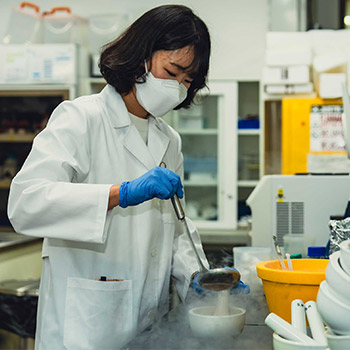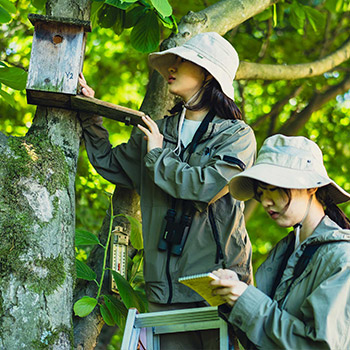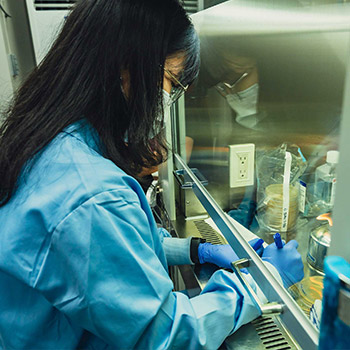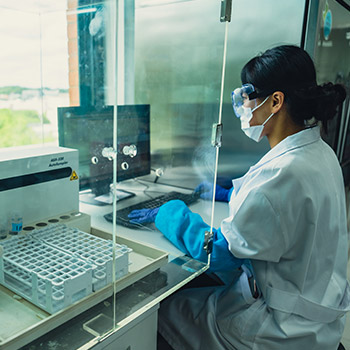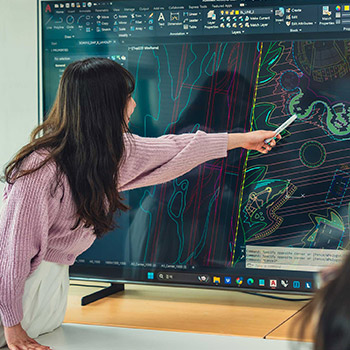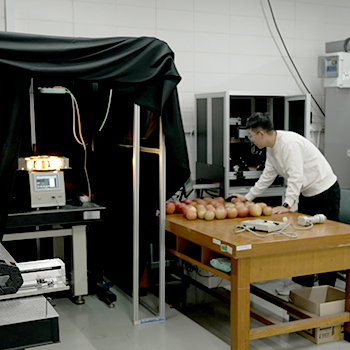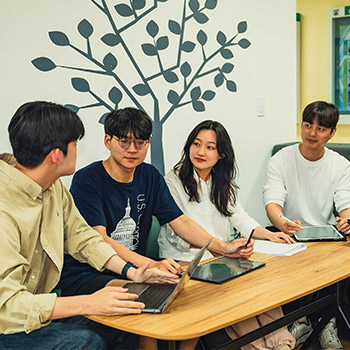Department of Agricultural Biotechnology
☎ +82-2-880-4901
200-6107
Agricultural biotechnology is a cutting-edge science incorporating biotechnology and agricultural science. Genetic engineering, cell and tissue culture technologies of biotechnology are combined with the technologies of agricultural sciences.
Agricultural biotechnology has assumed a critical role of securing food resources both in quantity and in quality utilizing flora and fauna biological resources, developing advanced biomaterials, treating plant and animal disease, and preserving the global environment.
The Department of Agricultural Biotechnology conducts research on biological resources, animals, plants, microbes to meet the needs of humanity by solving food issues, environmental problems and diseases collaboration with the knowledge of biotechnology, strategic industry. The program carries out research on high value-added biomaterials and fostering future leaders in this academic field.
The Department of Agricultural Biotechnology encompasses six programs: Program in Food Science and Biotechnology; Program in Animal Science and Biotechnology; Program in Applied Life Chemistry; Program in Plant Microbiology; Program in Entomology; and Program in Biomodulation. The Department supports professors and graduate students' research activities with the Brain Korea 21 Projects implemented by the Ministry of Education, Science and Technology.
Agricultural biotechnology has assumed a critical role of securing food resources both in quantity and in quality utilizing flora and fauna biological resources, developing advanced biomaterials, treating plant and animal disease, and preserving the global environment.
The Department of Agricultural Biotechnology conducts research on biological resources, animals, plants, microbes to meet the needs of humanity by solving food issues, environmental problems and diseases collaboration with the knowledge of biotechnology, strategic industry. The program carries out research on high value-added biomaterials and fostering future leaders in this academic field.
The Department of Agricultural Biotechnology encompasses six programs: Program in Food Science and Biotechnology; Program in Animal Science and Biotechnology; Program in Applied Life Chemistry; Program in Plant Microbiology; Program in Entomology; and Program in Biomodulation. The Department supports professors and graduate students' research activities with the Brain Korea 21 Projects implemented by the Ministry of Education, Science and Technology.

Programs
Program in Food Science and Biotechnology
☎ +82-2-880-4850
+82-2-873-5095
200-8121
The principal objective of the Program in Food Science and Biotechnology is to train students and make them as food technologists and engineers equipped with chemical and biological skills and engineering methodology for a comprehensive understanding of physicochemical properties of foods, processing and preservation of food materials, and biotechnological applications.
The undergraduate program emphasizes both basic principles and key technologies necessary for food and bio-industry. The curriculum is, therefore, designed to provide core courses such as food chemistry, food microbiology, food engineering, food processing, food preservation, food analysis, food biotechnology, and biochemical engineering. Organic chemistry, analytical chemistry, physical chemistry, applied mathematics, biochemistry, and molecular biology are also required to pursue major courses.
The program offers graduate studies leading to the M.S. and Ph.D. degrees. The graduate program is designed to provide students with opportunities for creative endeavors in academic coursework and in fundamental and applied research in the field of food science and technology. This will keep students at the forefront in their professional careers. Graduates have a wide variety of employment opportunities in research and educational institutions, government agencies, and private enterprises.
The undergraduate program emphasizes both basic principles and key technologies necessary for food and bio-industry. The curriculum is, therefore, designed to provide core courses such as food chemistry, food microbiology, food engineering, food processing, food preservation, food analysis, food biotechnology, and biochemical engineering. Organic chemistry, analytical chemistry, physical chemistry, applied mathematics, biochemistry, and molecular biology are also required to pursue major courses.
The program offers graduate studies leading to the M.S. and Ph.D. degrees. The graduate program is designed to provide students with opportunities for creative endeavors in academic coursework and in fundamental and applied research in the field of food science and technology. This will keep students at the forefront in their professional careers. Graduates have a wide variety of employment opportunities in research and educational institutions, government agencies, and private enterprises.

Faculty
| Name | Major | TEL | |
|---|---|---|---|
| Professor Kang Donh Hyun |
Food Safety | +82-2-880-2697 | kang7820@snu.ac.kr |
| Professor Lee Ki won |
Food-Medicine Genomics | +82-2-880-4661 | kiwon@snu.ac.kr |
| Professor Chang Pahn-Shick |
Enzyme Technology | +82-2-880-4852 | pschang@snu.ac.kr |
| Professor Choi Sang Ho |
Molecular Microbiology and Toxicology | +82-2-880-4857 | choish@snu.ac.kr |
| Professor Ha Nam-Chul |
Food Biochemistry | +82-2-880-4853 | hanc210@snu.ac.kr |
| Professor Lee, Do Yup |
metabolomics | +82-2-880-4855 | rome73@snu.ac.kr |
| Professor Lee, Ju-Hoon |
Food Microbiome | +82-2-880-4854 | juhlee@snu.ac.kr |
| Professor Choi Young Jin |
Food Engineering | +82-2-880-4851 | choiyj@snu.ac.kr |

